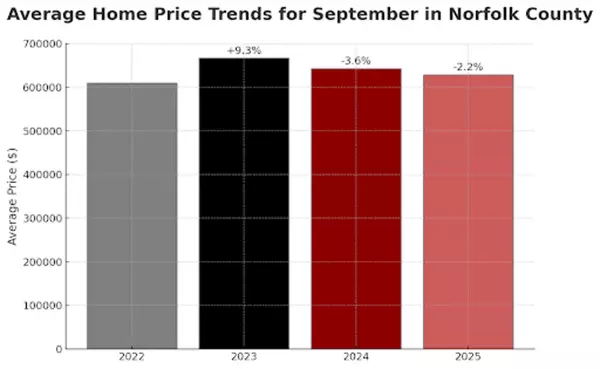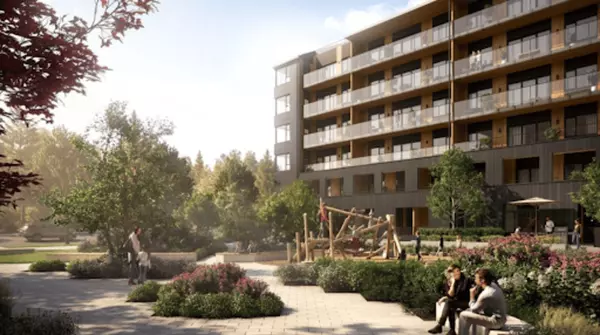All Municipalities Should Embrace New Housing Legislation
When the Ontario government passes legislation, and it receives royal assent, it becomes the law of the land across the province. Stunningly, though, some municipal politicians don’t see it that way.
Recently, the provincial PCs approved Bill 17 – the Protect Ontario by Building Faster and Smarter Act – which will open up more opportunities for housing as it permits builders the option to defer development changes until occupancy as opposed to when a building permit is issued.
The legislation also limits and standardizes what studies municipalities can ask of a developer and clarifies that municipalities can not impose requirements that exceed the Ontario Building Code.
The whole idea is to streamline development processes and reduce costs for housing by having consistent construction standards across all 444 municipalities. The legislation will cut down on local planning studies and have municipalities abiding by a single consistent building code.
But some municipal politicians object to the legislation and have suggested their councils oppose it – despite the fact it has been passed into law.
Some Politicians Are Opposed
Most vocal on that front has been Guelph city council which has condemned Bill 17 as well as Bill 5 – the Protect Ontario by Unleashing our Economy Act – which creates special economic zones that could allow developments to bypass other laws at the discretion of the government.
Four councillors on Aurora city council are also worried about the bills, particularly Bill 17, arguing it reduces the power of local municipalities in planning and development approvals and could result in substandard buildings, strained infrastructure and negative long-term effects.
They couldn’t be more wrong.
Aurora Mayor Tom Mrakas weighed in with a letter to council, noting that to oppose the bills in their entirety now – after they have been passed into law – is both pointless and moot. He is right, of course.
As he suggested in his letter, the Association of Municipalities of Ontario has clearly stated that while some aspects of the legislation require clarification and adjustment, other proposals – such as development charge modernization in Bill 17 and special economic zones in Bill 5 – could drive local economic growth if municipalities are full partners.
Provincial Law Is Clear
Meanwhile, at Toronto city hall, staff concluded the municipality can ignore Bill 17 and continue to impose the Toronto Green Standard (TGS) which has provisions beyond those in the building code. This, in spite of the fact that Bill 17 renders the green building standards unenforceable.
The staff report was inaccurate and misleading. Provincial law is quite clear and includes a provision that municipalities cannot impose on developers any requirements that exceed the OBC.
The province clarified the matter in a statement issued on behalf of Municipal Affairs and Housing Minister Rob Flack which noted that Bill 17 takes away Toronto’s authority to enforce its green standards.
“Our government’s legislation … standardizes construction requirements and provides consistency, clarifying that no municipality has the authority to enforce a bylaw that supersedes the Ontario Building Code,” a spokesperson for the minister wrote in a statement.
Case closed.
Bill 17 Is Law of the Land
Bill 17 was passed in June. It is time that all municipalities get with the program.
With the housing market in freefall, we must streamline the process and ensure all municipalities are singing off the same song sheet. There is no time to waste.
Altus Group reports that only 42 condos were sold in May in the City of Toronto – a 97-per-cent decrease since May 2021, which is costing governments about $6.6 billion a year in lost tax revenue.
The situation is looking worse than in the early 90s when things went off a cliff. Layoffs in Ontario’s residential construction industry could range from 200,000 to 300,000. Projects that are being completed now were sold years ago. When finished, there is nothing to replace them.
The main problem is the tax burden. Taxes, fees and levies make it so builders can’t build homes people can afford.
The ratio of housing costs to incomes is out of whack. The ratio is now around 11:1 when it should be 3:1.
There have been some glimmers of hope. Jurisdictions such as Vaughan and Mississauga have lowered their development charges and senior levels of government are now taking action.
Prime Minister Mark Carney has eliminated the GST for first-time purchasers on new homes valued up to $1 million and reduced the sales tax for first-time buyers on a sliding scale for homes that are purchased between $1 and $1.5 million.
At the provincial level, the Ontario government has signaled it will align with the federal rebate on the GST for first-time homebuyers and we are hopeful that will happen this fall.
However, getting the industry back on track will require further steps to reduce the tax burden on new housing, reducing development charges, speeding up the approvals process and tweaking the building code.
This is not the Wild West. We don’t need individual municipalities going off and cooking up their own standards.
Industry layoffs have started, tenders are being delayed or scaled back, and new developments are being put on hold.
Now is not the time for amateur hour.
Recent Posts










